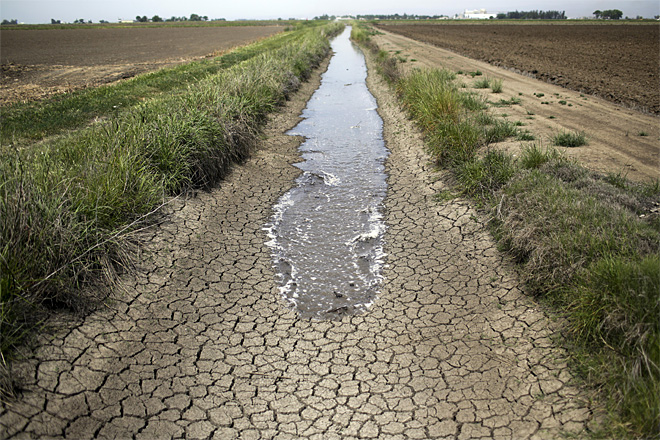
Last November, a coalition of river defenders including San Diego Coastkeeper and Los Angeles Waterkeeper filed a lawsuit seeking to compel the State Water Resources Control Board to recognize California’s rivers that don’t have enough water flowing through them to support fish, wildlife, and recreation. Under federal law, the State Water Board is obligated to study the state of rivers and list as “impaired” any waterway that cannot be used for drinking, swimming, fishing, or habitat due to pollution. These impairment listings are vital because they inform how the Board prioritizes work to restore ailing rivers in California. Federal law also requires that these impairment listings are updated every two years and incorporate all relevant data. But in some regions, including San Diego and Los Angeles, data that is nearly a decade old is being ignored in the development of stream restoration and protection plans. By failing to list the Salinas River, Carmel River, San Clemente Creek, and dozens of other seriously impaired rivers, the Board cannot identify and address the issues that lead to rivers with low flows, high temperatures, endangered fish, and toxic algae blooms. California needs our State Water Board to protect our rivers, particularly as our state faces a hotter, drier future. California Coastkeeper Alliance has launched the Clean Water Accountability Project to ensure that our State and Regional Water Boards are making full use of the law to protect the rivers and streams that support our communities and economy.
November 1, 2017
FOR IMMEDIATE RELEASE
Contacts:
- Grant Wilson (, 510-566-1063)
- Matt O’Malley (, 619-758-7743)
- Sharon Licht (, 310-394-6162 x108
River Defenders File Lawsuit to Protect California’s Waterways
Suit seeks state compliance with the Clean Water Act and CEQA
Sacramento, CA (November 1, 2017)—Today, a coalition of river defenders filed a lawsuit against the State Water Resources Control Board for its failure to meet key Clean Water Act and California Environmental Quality Act (CEQA) requirements intended to protect the ecological health of waterways. Lawyers for Clean Water is representing the coalition in the lawsuit.
The Clean Water Act requires states to undertake a process every two years to list waterways that are “impaired” if pollutants impact water uses, such as for drinking, swimming, fishing, and habitat. Such listings then trigger the development of clean-up plans. Currently, more than 40,000 miles (or about 20 percent) of California’s rivers and streams are classified as impaired by a variety of pollutants. The Act also allows states to identify waterways as impaired due to low or altered flows that threaten a river’s ability to support fish and other uses.
Earth Law Center, Los Angeles Waterkeeper, and San Diego Coastkeeper are challenging the State Water Board’s adoption of its merged 2014/2016 list of impaired waterways, which was approved three years after it was scheduled and with an inadequate process that largely left the public out of the decision-making. While the three environmental groups have many complaints, some of their primary concerns include the State Water Board’s:
- failure to list any waterways as impaired due to altered flows;
- extreme delays in adopting its 2014/2016 list, in violation of the statutory deadline;
- arbitrary decision to cut off data used to develop the 2014/2016 list as of August 30, 2010 (meaning the last 5 years of data will not be used for over a decade in some parts of the state); and
- failure to conduct necessary CEQA review, which requires state and local agencies to identify and potentially mitigate significant environmental impacts of proposed projects.
“It’s clear that the State Water Board is not taking the impaired waters lists as seriously as they should be, or allocating the staff resources necessary for such an important program,” said Arthur Pugsley, Senior Attorney at LA Waterkeeper. “Considering the necessity of these listings to inform the public of possible health threats and to trigger the adoption of restoration plans, we hope this lawsuit sends a clear signal that the impaired waters lists must be a higher priority for the agency.”
A major component of this suit is over the State Water Board’s continued failure to list waterways as impaired by altered flows due to the over-extraction of water, dams, or other hydrological alterations. Many of these waterways run completely dry at times.
“For over seven years, a broad coalition of environmental organizations, tribes, and fishing groups have asked the state to identify waterways that are legally impaired under the Clean Water Act due to altered flows,” noted Grant Wilson, Directing Attorney at Earth Law Center. “Yet, once again, California failed to make a single such listing, contrary to overwhelming evidence and the urging of U.S. Environmental Protection Agency policy documents.”
In failing to list waters as impaired due to altered flows, the State Water Board denied groups across California important tools necessary to put water back into rivers. For example, such listings can be used to ensure that state and local decisions affecting waterways consider and potentially mitigate further flow alteration.
Added Wilson, “The State Water Board refuses to formally recognize that our drained and fragmented waterways are unhealthy. California’s water governance is broken, and we must make changes to secure the right of all waterways to thrive.”
Throughout California, threatened and endangered fish species struggle to survive in rivers that are over-diverted, dammed, and otherwise modified. The challenges these species face will only intensify with the impacts of climate change. A recent report by CalTrout and UC Davis Center for Watershed Sciences found that 45 percent of California salmonids face likely extinction unless we adapt to climate change and take other steps to protect waterways, which includes restoring flows.
The lawsuit cites a handful of waterways that are unequivocally impaired due to altered flows. These include the Salinas River, Carmel River, San Clemente Creek, Big Sur River, Santa Maria River, Santa Clara River, Central Valley waters (particularly the Delta), Napa River, and Santa Ana River. The lawsuit also takes issue with the state’s inexplicable rejection of 30 waterways that the San Diego Regional Water Board recommended for listing due to hydrological and habitat alteration.
“The current process used by the State Water Board results in an out-of-date and incomplete description of the health of our waterways, ensuring restoration and recovery plans will also fall short,” noted Matt O’Malley, Executive Director and attorney at San Diego Coastkeeper. “Our lawsuit aims to make sure the State Water Board timely considers all relevant information in order to address the poor state of California’s waters.”
###
ABOUT THE PLAINTIFFS
Earth Law Center (www.earthlawcenter.org) works to transform the law to recognize and protect nature’s inherent rights to exist, thrive and evolve. This includes advancing the inherent rights of rivers.
San Diego Coastkeeper (www.sdcoastkeeper.org) is dedicated to the preservation, protection, and defense of the environment, wildlife, and natural resources of San Diego County watersheds
Los Angeles Waterkeeper (www.lawaterkeeper.org) works to protect and restore Santa Monica Bay, San Pedro Bay, and adjacent waters through enforcement, fieldwork, and community action.

Executive Director Sara Aminzadeh leads CCKA’s initiatives to protect and defend California’s ocean, bays and rivers.



